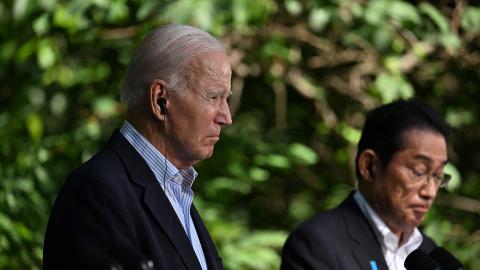After six months in which the Middle East seemed to suck all the oxygen out of the Oval Office, the White House is pivoting to the Indo-Pacific this week as Japan’s Prime Minister Fumio Kishida arrives for consultations and a state dinner. President Biden and Mr. Kishida will be joined Thursday by Philippine President Ferdinand Marcos Jr. for talks on China’s growing military threat to the Philippines.
The deepening security relationship with an increasingly activist Japan is the heart of America’s strategy, which illustrates both the potential and possible pitfalls in Team Biden’s approach. As China’s power has grown and it has cast off the “peaceful rise” policy of Deng Xiaoping’s era, Tokyo sees Beijing’s ambitions as a direct and increasingly urgent threat to its security and independence. If China compels Taiwan to unite with the mainland and makes good on its sweeping claims in the South China Sea, Beijing will be able to restrict Japan’s trade with the world. Tokyo is responding to this threat, made more powerful by China’s growing alliance with Russia, by increasing defense spending, strengthening its security relationship with the U.S., and enhancing military cooperation and engagement with neighbors like the Philippines.

















